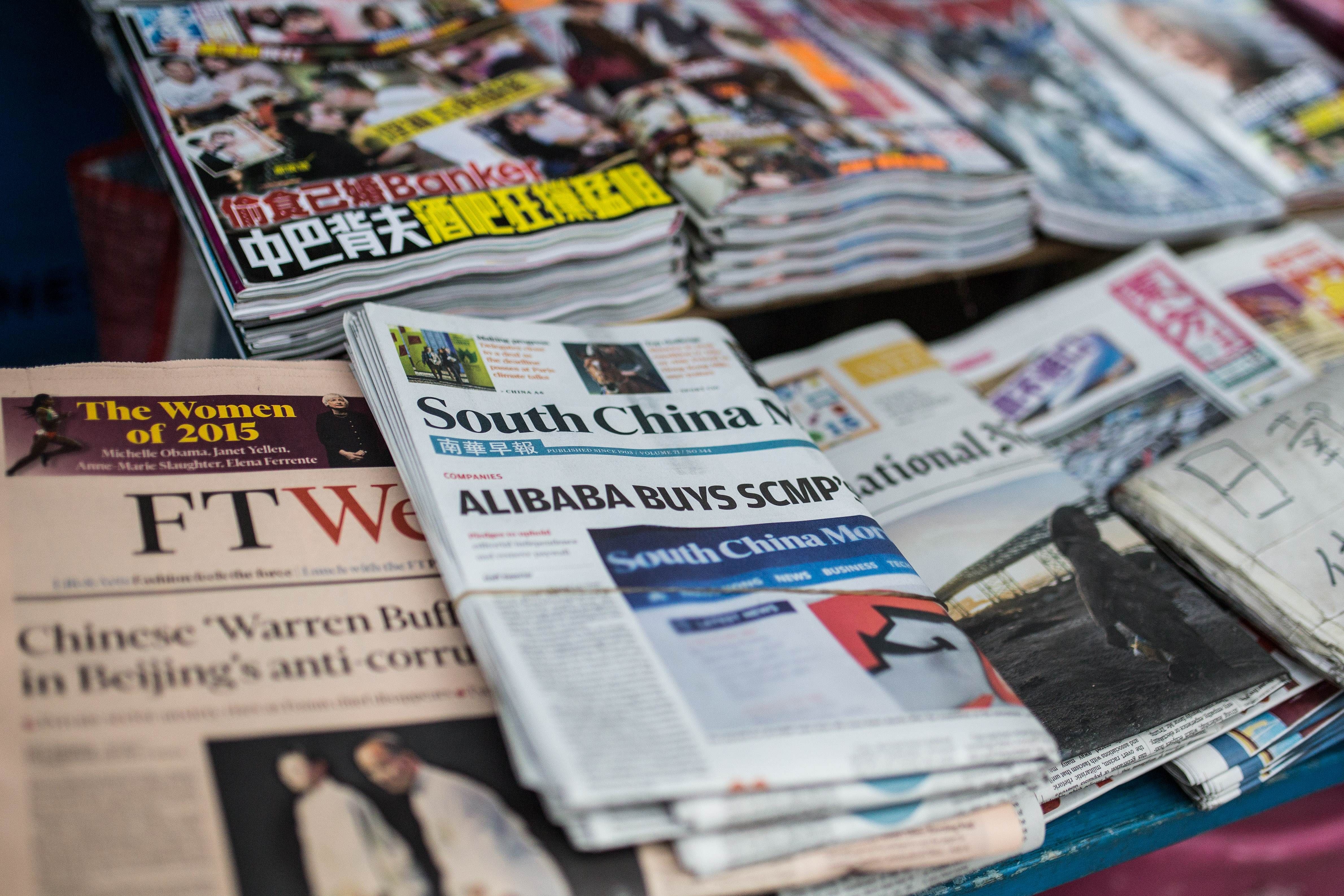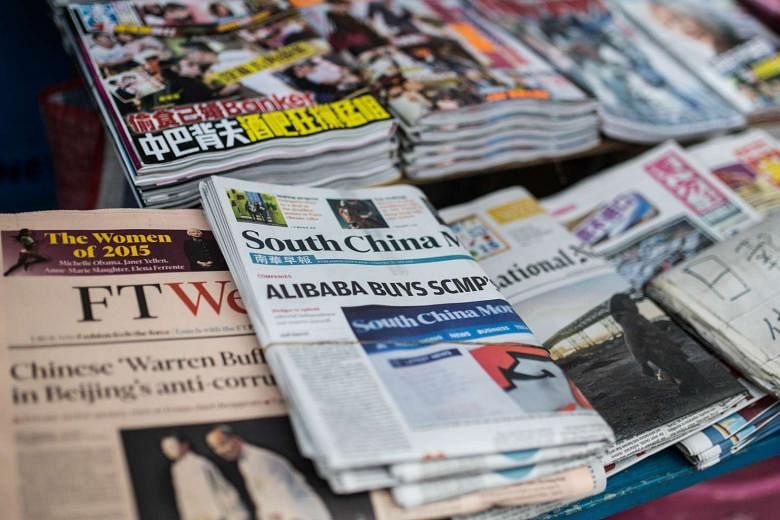The story of Ali Baba is well known. The Arabian fable tells of a woodcutter who discovers the password, "open sesame", to a treasure cave containing the loot of a band of thieves. They plot to kill him but Ali Baba, with his resourceful slave girl, wins the day by pouring boiling oil over them instead.
In Hong Kong, the incursion of Alibaba - the Chinese Internet behemoth owned by Mr Jack Ma - into the media landscape has been met with trepidation. It enters bearing not vats of sizzling oil, but what many fear to be more nefarious - a diktat by Beijing to bring Hong Kong's influential media under its thumb.
Last Friday, Alibaba announced that it is buying Hong Kong's leading English-language broadsheet, the 112-year-old South China Morning Post (SCMP), a go-to source of news on China for the English-speaking world.
Netizens promptly dubbed the paper the China Daily Morning Post or South China Global Times, riffing on the names of China's state newspapers. The Hong Kong Journalists' Association issued a statement expressing concern that editorial freedom will be compromised.
In China, some users of Sina Weibo - incidentally a social media platform partially owned by Alibaba - were uneasy as well.
One wrote: "One more government media outlet."
In an interview with the SCMP, Mr Ma's right-hand man, Alibaba executive vice-chairman Joseph Tsai, candidly laid out the new owner's vision for its latest acquisition.
"Today when I see mainstream Western news organisations cover China, they cover it through a very particular lens. It is through the lens that China is a communist state and everything kind of follows from that. A lot of journalists working with these Western media organisations may not agree with the system of governance in China and that taints their view of coverage. We see things differently, we believe things should be presented as they are."
The message is clear: The SCMP will help right the balance of what Alibaba believes to be jaundiced overseas coverage of the emerging regional power. This is a view that is held not just by defensive China supporters but some outsiders as well. Singapore's former foreign minister, Mr George Yeo, who had also served as minister for information and the arts, told The Straits Times "it is natural that many Western observers see China through their own lenses and therefore tend to write about China as it should be rather than what it is".
By contrast, the SCMP offers coverage that is "less distorted" than both Western and Chinese media, said Mr Yeo, now working for Malaysian tycoon Robert Kuok, who had sold the paper to Alibaba.

In that sense, the Hong Kong broadsheet will help lead a charge by China to help the world "understand" its point of view better and, in the process, burnish its global image and expand its soft power.
To grab as many eyeballs as possible, the SCMP will dismantle its digital paywall - a move in the opposite direction from what other dailies are doing, but in line with the modus operandi of Internet firms looking to acquire customers at the expense of short-term revenue.
But does that mean the SCMP will become a mere well-muscled propaganda apparatus of the Chinese leadership, as many fear?
Mr Ma is too sophisticated to want to let the paper degenerate thus, for that will be the surest way to lose readers, credibility and influence.
In his transformation from an English-language schoolteacher in Hangzhou to China's top tech mogul shepherding his company to offer the world's largest IPO (initial public offering), the 51-year-old has skilfully played to his various constituencies.
On the one hand, he has cultivated his public image both at home and overseas as a disruptive private-sector entrepreneur and one who abhors the use of guanxi (Chinese for connections) and bribery. In his sweater-and-jeans outfits and casual wisecracking manner, he invites and woos comparisons to United States' Mr Steve Jobs or Mr Mark Zuckerburg.
At the same time, Mr Ma's connections with Beijing's establishment, including its top leadership, cannot be underplayed. China's princelings have been crucial to Alibaba's success, helping with infusions of funds when needed. Alibaba, in turn, has proven itself a loyal corporate citizen, aligning itself with national policies such as by reaching into the rural innards of the country to boost domestic consumption and reduce poverty. Such efforts have earned the company public accolades from Premier Li Keqiang.
Mr Ma's vision for the SCMP is thus more likely Al Jazeera - the network backed by Qatar's ruling dynasty to provide a counterweight to CNN and BBC, and which has won investigative journalism awards - rather than China Daily or the Global Times, the shrill, nationalistic mouthpieces of Beijing.
The big question though is how much leeway the leaders sitting in Zhongnanhai will give. Will they be able to resist the temptation to order Mr Ma to shape the SCMP's coverage in the manner they want, and will he be able to resist the pressure? Many China watchers are not optimistic. Under President Xi Jinping, propaganda overseers have shortened the leash on domestic media outlets, censoring critical reports. What lies before Mr Ma may not be the treasure trove of influence he hopes for, but - as some have put it - a poisoned chalice.
Speaking in Wuzhen yesterday, Mr Ma told The Wall Street Journal: "Trust us. Why do people have to think that if we have it, it will lose its independence? Why not with others? We also read the newspapers. We also want media independence and fairness. What basis is there that with us, there will be no more independence?"
On critics who say Alibaba would be compelled by Beijing to change the newspaper's coverage, this was his zinger: "I think those people think too little of us."
How this Alibaba tale will turn out, only time will tell.


